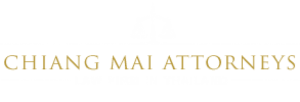The Thai property market is a dynamic sector, offering opportunities for both local and foreign investors. With robust demand across residential, commercial, and industrial segments, the market reflects Thailand’s economic growth, urbanization, and appeal as a global destination. Understanding market trends, regulations, and investment opportunities is crucial for navigating this landscape.
1. Key Segments of the Thai Property Market
1.1 Residential Property
- Condominiums:
- Popular among urban dwellers and foreign buyers due to favorable ownership laws.
- Key markets include Bangkok, Phuket, Pattaya, and Chiang Mai.
- Detached Houses and Townhouses:
- Preferred by Thai families, offering larger spaces in suburban areas.
1.2 Commercial Property
- Office Spaces:
- High demand in Bangkok’s central business districts such as Silom and Sukhumvit.
- Retail Spaces:
- Shopping malls and mixed-use developments cater to Thailand’s growing consumer market.
1.3 Industrial and Logistics
- Warehousing and Logistics:
- Driven by Thailand’s role as a regional hub for manufacturing and exports.
- Industrial Parks:
- Popular with foreign investors due to incentives from the Board of Investment (BOI).
2. Foreign Ownership Regulations
- Condominiums:
- Foreigners can own up to 49% of the total unit area in a condominium project.
- Land:
- Direct land ownership is restricted for foreigners, but leaseholds (up to 30 years, renewable) and usufruct arrangements are viable alternatives.
- Company Ownership:
- Forming a Thai company with majority Thai ownership allows indirect land investment.
3. Market Trends and Influences
- Urbanization:
- Rapid urban development in Bangkok and secondary cities boosts demand for residential and commercial properties.
- Tourism:
- High demand for vacation homes and rental properties in popular tourist destinations like Phuket and Samui.
- Government Initiatives:
- Projects like the Eastern Economic Corridor (EEC) drive investment in industrial and mixed-use developments.
4. Investment Opportunities
- Emerging Markets:
- Secondary cities such as Khon Kaen and Udon Thani offer untapped growth potential.
- Luxury Real Estate:
- Rising demand for high-end properties among affluent locals and foreign buyers.
- Co-Working Spaces:
- Expansion of startups and remote work drives demand for flexible office spaces.
5. Challenges and Risks
- Regulatory Complexity:
- Navigating foreign ownership laws and compliance can be challenging.
- Economic Volatility:
- External factors, such as global economic conditions, affect property demand and pricing.
- Over-Supply in Certain Segments:
- Excessive development in the condominium market may lead to price stagnation in some areas.
6. Practical Considerations for Investors
- Due Diligence:
- Conduct thorough title searches and verify land ownership before purchasing.
- Local Partnerships:
- Collaborating with reputable Thai developers and legal professionals ensures smoother transactions.
- Tax Implications:
- Understand property taxes, transfer fees, and withholding tax obligations.
Conclusion
Thailand’s property market offers diverse opportunities, from residential condominiums to industrial spaces. While regulatory frameworks and economic factors require careful navigation, strategic investments in high-demand segments and emerging markets can yield substantial returns. Consulting experts and staying informed about market trends are essential for maximizing opportunities in this dynamic sector.


